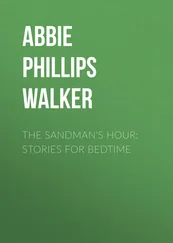Maria Edgeworth - The Parent's Assistant; Or, Stories for Children
Здесь есть возможность читать онлайн «Maria Edgeworth - The Parent's Assistant; Or, Stories for Children» — ознакомительный отрывок электронной книги совершенно бесплатно, а после прочтения отрывка купить полную версию. В некоторых случаях можно слушать аудио, скачать через торрент в формате fb2 и присутствует краткое содержание. Издательство: Иностранный паблик, Жанр: foreign_antique, foreign_prose, foreign_children, на английском языке. Описание произведения, (предисловие) а так же отзывы посетителей доступны на портале библиотеки ЛибКат.
- Название:The Parent's Assistant; Or, Stories for Children
- Автор:
- Издательство:Иностранный паблик
- Жанр:
- Год:неизвестен
- ISBN:нет данных
- Рейтинг книги:5 / 5. Голосов: 1
-
Избранное:Добавить в избранное
- Отзывы:
-
Ваша оценка:
- 100
- 1
- 2
- 3
- 4
- 5
The Parent's Assistant; Or, Stories for Children: краткое содержание, описание и аннотация
Предлагаем к чтению аннотацию, описание, краткое содержание или предисловие (зависит от того, что написал сам автор книги «The Parent's Assistant; Or, Stories for Children»). Если вы не нашли необходимую информацию о книге — напишите в комментариях, мы постараемся отыскать её.
The Parent's Assistant; Or, Stories for Children — читать онлайн ознакомительный отрывок
Ниже представлен текст книги, разбитый по страницам. Система сохранения места последней прочитанной страницы, позволяет с удобством читать онлайн бесплатно книгу «The Parent's Assistant; Or, Stories for Children», без необходимости каждый раз заново искать на чём Вы остановились. Поставьте закладку, и сможете в любой момент перейти на страницу, на которой закончили чтение.
Интервал:
Закладка:
The love of mystery was the only thing which could have conquered Mrs. Pomfret's love of talking. She was silent; and contented herself the rest of the evening with making signs, looking ominous , and stalking about the house like one possessed with a secret.
Escaped from Mrs. Pomfret's fears and advice, Mr. Spencer went to a shop within a few doors of the alehouse which he heard Corkscrew frequented, and sent to beg to speak to the landlord. He came; and, when Mr. Spencer questioned him, confessed that Corkscrew and Felix were actually drinking in his house, with two men of suspicious appearance; that, as he passed through the passage, he heard them disputing about a key; and that one of them said, 'Since we've got the key, we'll go about it to-night.' This was sufficient information. Mr. Spencer, lest the landlord should give them information of what was going forwards, took him along with him to Bow Street.
A constable and proper assistance was sent to Mrs. Churchill's. They stationed themselves in a back parlour which opened on a passage leading to the butler's pantry, where the plate was kept. A little after midnight they heard the hall door open. Corkscrew and his accomplices went directly to the pantry; and there Mr. Spencer and the constable immediately secured them, as they were carrying off their booty.
Mrs. Churchill and Pomfret had spent the night at the house of an acquaintance in the same street. 'Well, ma'am,' said Mrs. Pomfret, who had heard all the news in the morning, 'the villains are all safe, thank God. I was afraid to go to the window this morning; but it was my luck to see them all go by to gaol. They looked so shocking! I am sure I never shall forget Felix's look to my dying day! But poor Franklin! ma'am; that boy has the best heart in the world. I could not get him to give a second look at them as they passed. Poor fellow! I thought he would have dropped; and he was so modest, ma'am, when Mr. Spencer spoke to him, and told him he had done his duty.' 'And did my brother tell him what reward I intend for him?' 'No, ma'am, and I'm sure Franklin thinks no more of reward than I do.' 'I intend,' continued Mrs. Churchill, 'to sell some of my old useless plate, and to lay it out in an annuity for Franklin's life.' 'La, ma'am!' exclaimed Mrs. Pomfret, with unfeigned joy, 'I'm sure you are very good; and I'm very glad of it.' 'And,' continued Mrs. Churchill, 'here are some tickets for the play, which I shall beg you, Pomfret, to give him, and to take him with you.'
'I am very much obliged to you, indeed, ma'am; and I'll go with him with all my heart, and choose such plays as won't do no prejudice to his morality. And, ma'am,' continued Mrs. Pomfret, 'the night after the fire I left him my great Bible and my watch, in my will; for I never was more mistaken at the first in any boy in my born days; but he has won me by his own deserts , and I shall from this time forth love all the Villaintropic folks for his sake.'
SIMPLE SUSAN
CHAPTER I
Waked, as her custom was, before the day,
To do the observance due to sprightly May.
In a retired hamlet on the borders of Wales, between Oswestry and Shrewsbury, it is still the custom to celebrate the 1st of May.
The children of the village, who look forward to this rural festival with joyful eagerness, usually meet on the last day of April to make up their nosegays for the morning and to choose their queen. Their customary place of meeting is at a hawthorn which stands in a little green nook, open on one side to a shady lane, and separated on the other side by a thick sweet-brier and hawthorn hedge from the garden of an attorney.
This attorney began the world with nothing, but he contrived to scrape together a good deal of money, everybody knew how. He built a new house at the entrance of the village, and had a large well-fenced garden, yet, notwithstanding his fences, he never felt himself secure. Such were his litigious habits and his suspicious temper that he was constantly at variance with his simple and peaceable neighbours. Some pig, or dog, or goat, or goose was for ever trespassing. His complaints and his extortions wearied and alarmed the whole hamlet. The paths in his fields were at length unfrequented, his stiles were blocked up with stones, or stuffed with brambles and briers, so that not a gosling could creep under, or a giant get over them. Indeed, so careful were even the village children of giving offence to this irritable man of the law, that they would not venture to fly a kite near his fields lest it should entangle in his trees or fall upon his meadow.
Mr. Case, for this was the name of our attorney, had a son and a daughter, to whose education he had not time to attend, as his whole soul was intent upon accumulating for them a fortune. For several years he suffered his children to run wild in the village; but suddenly, on his being appointed to a considerable agency, he began to think of making his children a little genteel. He sent his son to learn Latin; he hired a maid to wait upon his daughter Barbara, and he strictly forbade her thenceforward to keep company with any of the poor children who had hitherto been her playfellows. They were not sorry for this prohibition, because she had been their tyrant rather than their companion. She was vexed to observe that her absence was not regretted, and she was mortified to perceive that she could not humble them by any display of airs and finery.
There was one poor girl, amongst her former associates, to whom she had a peculiar dislike, – Susan Price, a sweet-tempered, modest, sprightly, industrious lass, who was the pride and delight of the village. Her father rented a small farm, and, unfortunately for him, he lived near Attorney Case.
Barbara used often to sit at her window, watching Susan at work. Sometimes she saw her in the neat garden raking the beds or weeding the borders; sometimes she was kneeling at her beehive with fresh flowers for her bees; sometimes she was in the poultry yard, scattering corn from her sieve amongst the eager chickens; and in the evening she was often seated in a little honeysuckle arbour, with a clean, light, three-legged deal table before her, upon which she put her plain work.
Susan had been taught to work neatly by her good mother, who was very fond of her, and to whom she was most gratefully attached.
Mrs. Price was an intelligent, active, domestic woman; but her health was not robust. She earned money, however, by taking in plain work; and she was famous for baking excellent bread and breakfast cakes. She was respected in the village, for her conduct as a wife and as a mother, and all were eager to show her attention. At her door the first branch of hawthorn was always placed on May morning, and her Susan was usually Queen of the May.
It was now time to choose the Queen. The setting sun shone full upon the pink blossoms of the hawthorn, when the merry group assembled upon their little green. Barbara was now walking in sullen state in her father's garden. She heard the busy voices in the lane, and she concealed herself behind the high hedge, that she might listen to their conversation.
'Where's Susan?' were the first unwelcome words which she overheard. 'Ay, where's Susan?' repeated Philip, stopping short in the middle of a new tune that he was playing on his pipe. 'I wish Susan would come! I want her to sing me this same tune over again; I have not it yet.'
'And I wish Susan would come, I'm sure,' cried a little girl, whose lap was full of primroses. 'Susan will give me some thread to tie up my nosegays, and she'll show me where the fresh violets grow; and she has promised to give me a great bunch of her double cowslips to wear to-morrow. I wish she would come.'
Читать дальшеИнтервал:
Закладка:
Похожие книги на «The Parent's Assistant; Or, Stories for Children»
Представляем Вашему вниманию похожие книги на «The Parent's Assistant; Or, Stories for Children» списком для выбора. Мы отобрали схожую по названию и смыслу литературу в надежде предоставить читателям больше вариантов отыскать новые, интересные, ещё непрочитанные произведения.
Обсуждение, отзывы о книге «The Parent's Assistant; Or, Stories for Children» и просто собственные мнения читателей. Оставьте ваши комментарии, напишите, что Вы думаете о произведении, его смысле или главных героях. Укажите что конкретно понравилось, а что нет, и почему Вы так считаете.












